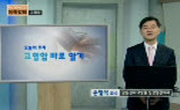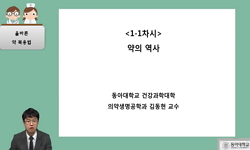본 연구의 목적은 고혈압 약물치료를 받고 있는 대상자들에게 비 약물치료요법으로 서예치료를 적용함으로 혈압을 안정된 상태로 나아가게 하는데 있다. 연구대상은 용인의 한 복지관에 ...
http://chineseinput.net/에서 pinyin(병음)방식으로 중국어를 변환할 수 있습니다.
변환된 중국어를 복사하여 사용하시면 됩니다.
- 中文 을 입력하시려면 zhongwen을 입력하시고 space를누르시면됩니다.
- 北京 을 입력하시려면 beijing을 입력하시고 space를 누르시면 됩니다.
https://www.riss.kr/link?id=A100544191
- 저자
- 발행기관
- 학술지명
- 권호사항
-
발행연도
2013
-
작성언어
Korean
- 주제어
-
KDC
600
-
자료형태
학술저널
- 발행기관 URL
-
수록면
169-185(17쪽)
- 제공처
-
0
상세조회 -
0
다운로드
부가정보
국문 초록 (Abstract)
연구대상은 용인의 한 복지관에 다니는 성인 남녀로 고혈압 진단을 받아 고혈압 약물을 복용하고 있으며 서예교육을 받은 적이 없는 대상자로 선정하였다. 실험군 6명과 대조군 6명을 선정하였고 그중 서예에 관심이 있는 실험군 6명은 서예치료를 병행하고 서예치료를 받지 않는 대조군 6명은 객관성 유지를 위해 프로그램 중 누워서 온찜질하는 대상자를 선정하여 혈압강하 효과를 실험하였다. 연구방법으로는 2009년 2월 17일부터 주1회 70분간 모두 12회기를 진행하였고 각 회기마다 자동혈압기(Omron 회사의 HEM-7051)로 회기의 전·후를 측정하였으며 보다 정확한 측정을 위하여 실험전 5분간 안정한 후 측정하였다. 맥박은 회기의 전과 후에 혈압과 함께 측정하였고, 기타 심리치료는 회기 프로그램 중 먹갈기 요법으로 음악과 함께 실시하여 마음을 안정시켜 혈압을 강하시키는데 도움을 주었다.측정도구로는 사전·사후검사에서 실험군과 대조군간의 차이를 살펴보기 위해 독립 표본 t -검증을 실시하였고 사후 검사에서의 실험군과 대조군 차시별 SBP·DBP·HR 차이를 살펴보기 위하여 반복측정분산분석을 실시하였다. 실험결과를 살펴보면 실험군은 대조군에 비해 수축기압(SBP)은 6.38mmHg 강하되어 통계적으로 의미가 있는 차이를 보였고 확장기압(DBP)에서는 0.27mmHg씩 약간 강하된 차이를 보였으며, 맥박(HR)에서는 분당 0.8회 씩 낮아지는 양상을 보였다. 이로써 수축기압이 실험군과 대조군의 실험 전·후 비교에서 가장 의미있는 차이가 있었다.
본 연구의 목적은 고혈압 약물치료를 받고 있는 대상자들에게 비 약물치료요법으로 서예치료를 적용함으로 혈압을 안정된 상태로 나아가게 하는데 있다.
연구대상은 용인의 한 복지관에 다니는 성인 남녀로 고혈압 진단을 받아 고혈압 약물을 복용하고 있으며 서예교육을 받은 적이 없는 대상자로 선정하였다. 실험군 6명과 대조군 6명을 선정하였고 그중 서예에 관심이 있는 실험군 6명은 서예치료를 병행하고 서예치료를 받지 않는 대조군 6명은 객관성 유지를 위해 프로그램 중 누워서 온찜질하는 대상자를 선정하여 혈압강하 효과를 실험하였다. 연구방법으로는 2009년 2월 17일부터 주1회 70분간 모두 12회기를 진행하였고 각 회기마다 자동혈압기(Omron 회사의 HEM-7051)로 회기의 전·후를 측정하였으며 보다 정확한 측정을 위하여 실험전 5분간 안정한 후 측정하였다. 맥박은 회기의 전과 후에 혈압과 함께 측정하였고, 기타 심리치료는 회기 프로그램 중 먹갈기 요법으로 음악과 함께 실시하여 마음을 안정시켜 혈압을 강하시키는데 도움을 주었다.측정도구로는 사전·사후검사에서 실험군과 대조군간의 차이를 살펴보기 위해 독립 표본 t -검증을 실시하였고 사후 검사에서의 실험군과 대조군 차시별 SBP·DBP·HR 차이를 살펴보기 위하여 반복측정분산분석을 실시하였다. 실험결과를 살펴보면 실험군은 대조군에 비해 수축기압(SBP)은 6.38mmHg 강하되어 통계적으로 의미가 있는 차이를 보였고 확장기압(DBP)에서는 0.27mmHg씩 약간 강하된 차이를 보였으며, 맥박(HR)에서는 분당 0.8회 씩 낮아지는 양상을 보였다. 이로써 수축기압이 실험군과 대조군의 실험 전·후 비교에서 가장 의미있는 차이가 있었다.
다국어 초록 (Multilingual Abstract)
As shown above, the therapy with calligraphy proved to be effective in lowering the blood pressure through developing into the stabilized phase mentally and physically. In addition, we were able to review a variety of effects in this therapy type. As such, it is necessary to develop the various programs fit to the nature of corresponding people, based on the good understandings for calligraphic therapy.
This causes the difficulty, however, in terms of economic condition due to medical expenses as well as the adverse drug reaction over a long period, which leads to deterrence to the prompt treatment. In this study, a way to proceed to the stable statu...
This causes the difficulty, however, in terms of economic condition due to medical expenses as well as the adverse drug reaction over a long period, which leads to deterrence to the prompt treatment. In this study, a way to proceed to the stable status was examined through application of calligraphy among the non-medication methods for patients under hypertensive medication regarding the blood pressure. Firstly, the study took a look at the overalls about calligraphic method, and further, its development in the course of therapy, the examples and prospects were reviewed. With initiation of approach to scientistic and medical foundation, the review on the respiration and blood pressure and the medical care for hypertension was followed as well. As to the specific performance, the methods, objects and results are as follows: The subjects for this study were from part of the male and female adults in a certain welfare center in the City of Yongin, Korea, and all of whom were under medication for hypertension. Those without experience in calligraphy training were chosen for the test. The six for experimental group and the other six for control group were taken as subject group, respectively. Out of these two, one group in six interested in calligraphy was given the calligraphic therapy training along with medication. On the other, with a view to objectivity outcome, the other group in six without training was given hot-packing, allowing to lie down in the course of program, With this condition, the pressure lowering effect from calligraphic therapy was performed. 12 times of test were processed once a week for 70 min from February 17, 2009 for examination and the measurements of blood pressure were made against them by using the sphygmotonograph (HEM-7051, Omron) after and before the training. To practice the accuracy in measurements, a five-minute rest was given prior to measuring. The nurse in welfare center checked it out herself to keep the objectivity. The pulse was measured together with blood pressure before and after each cycle. For the measuring vehicle, the independent sample t-test was exercised to see any difference between the experimental group and control group in the pre-post test. In the post test, the analysis of variance with repeated measures (RM-ANOVA) was taken to look into the difference in SBP․DBP․HR between experimental group and control group according to time step difference.Having a look at the test results, the experimental group had the significant difference statistically, showing the decreased pressure by the 6.38mmHg in SBP when compared to the control group. There was a little decrease in pressure by the 0.27mmHg in DBP while there happened a pattern with decrease in the cycle of 0.8 in case of HR. Thus, there was the most significant difference in the systolic blood pressure (SBP) in the comparison of pre-post test between the experimental group and the control group.
As shown above, the therapy with calligraphy proved to be effective in lowering the blood pressure through developing into the stabilized phase mentally and physically. In addition, we were able to review a variety of effects in this therapy type. As such, it is necessary to develop the various programs fit to the nature of corresponding people, based on the good understandings for calligraphic therapy.
동일학술지(권/호) 다른 논문
-
미술치료를 활용한 집단 따돌림 피해 여고생 집단상담 사례 연구
- 한국임상치유예술학회
- 김영신
- 2013
-
뚜렛장애아동의 불안감소 및 또래관계 향상을 위한 예술치료 사례
- 한국임상치유예술학회
- 오승주
- 2013
-
집단미술치료 프로그램이 결혼이주여성의 우울, 자아존중감 및 결혼만족도에 미치는 효과
- 한국임상치유예술학회
- 정선희
- 2013
-
인지행동적 집단미술치료가 학교생활 부적응 아동의 사회성 및 주의집중력 향상에 미치는 효과
- 한국임상치유예술학회
- 박경화
- 2013




 RISS
RISS






